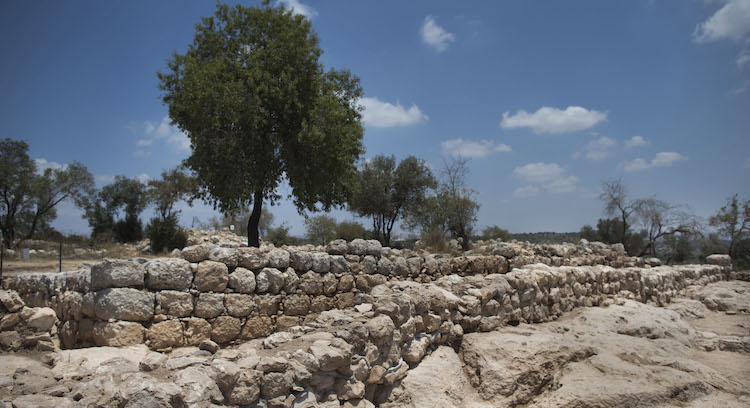There is a war on history so ruthless and pervasive that I should say up front that there is, believe it or not, a silver lining. Two, actually.
But first, the bleak part.
When it comes to Jewish historical sites in the holy land, even your most “moderate” academic seems to turn into ISIS—a destructive force seeking a new and permanent dark age.
But because academic archaeological journals aren’t exactly the stuff of ratings, we don’t hear about it very much unless we go looking for it. So credit to journalist Amelie Botbol, who has been following an important story playing out in obscure places.
At Fox News, the Tel Aviv-based Botbol highlights recent stories from an Israeli news service that deserve attention.
In late April, the Press Service of Israel (TPS) covered the blacklisting of researchers who study ancient sites in Judea and Samaria, because the area is over the “green line” and thus considered occupied territory by the UN. Now, one might suggest that, occupied or not, the preservation and exploration of history is pretty important.
And it is—which is why those who undertake it get blacklisted if their areas of study encompass Jewish historical sites.
“This boycott is very clever,” Moshe Gutman, head of a preservation nonprofit, told the news service. “After having publications rejected repeatedly, archaeologists learn to avoid Judea and Samaria entirely. The scientific community is effectively driven away from the area.”
Indeed, the story is full of examples of academics and researchers losing their standing, access, and career paths for the crime of even participating in studies of ancient Israel. The idea is simple, if diabolical: Even if a few archaeologists defy the ban, they’ll have nowhere to publish their findings.
The culprits aren’t shy about the coordination. A few days after TPS’s first report, the service got on-the-record confirmation from the top editor of a leading archaeological journal based in London that covers the Levant. “Publication in [Palestine Exploration Quarterly] is guided by the PEF’s ethical policy,” the editor told TPS. “The main aspect of this is international law, by which many academic institutions and publications, including PEQ, are bound.”
There is one way to publish results from Judea and Samaria in the journal, however: if the authors “have cooperated with the relevant Palestinian authorities to do so.”
In other words, get permission from the Palestinian bureaucrats who are in charge of destroying evidence of Jewish history. And here’s where the other side of the boycott comes in: “There is no cooperation with the Palestinian Authority in the field of archaeology in Judea and Samaria, but not because the Israelis don’t want it,” an archaeologist at Bar-Ilan University said. “I would love to conduct a joint research with my Palestinian colleagues…. But it’s impossible because they are afraid to cooperate with Israelis. They would be treated as traitors for this.”
It’s pure academic segregation, in other words. Botbol notes that the United Nations and other international forums play a key role in the denial of history because they have “automatic anti-Israel majorities” for any votes. Those same authorities turn a blind eye when Jewish sites are violated, as happened in Jericho. “The burial grounds of Hasmonean kings—the largest necropolis in the Middle East from the Second Temple period—have been plowed and used for farming and construction,” an Israeli think tank director told Botbol. “In one case, we found human bones scattered in the fields. The Israeli Civil Administration had to collect and rebury them.”
So what are the silver linings? Well, this may come off as cold comfort, but the most important lesson from all this is that the entire world knows that Jews are indigenous to the land and that this history is well-established fact. That includes Palestinians and their advocates—no one in the world argues in good faith for the “colonialist” interpretation of Zionism.
This is the anti-Semitism version of flat-earth theory. It exists outside the very idea of knowledge. That is what is so threatening to the academic world: Their defensiveness is a tacit acknowledgement that the Palestinian-fueled anti-Zionist narrative of the land is universally regarded as a made-up story.
If there’s a second silver lining, it’s in the form of a lesson learned the hard way. Israel is the only trustworthy steward of the region’s history. Those dark ages the academic world is working so hard to bring about? The state of Israel is what stands in their way, and it isn’t going anywhere.


















